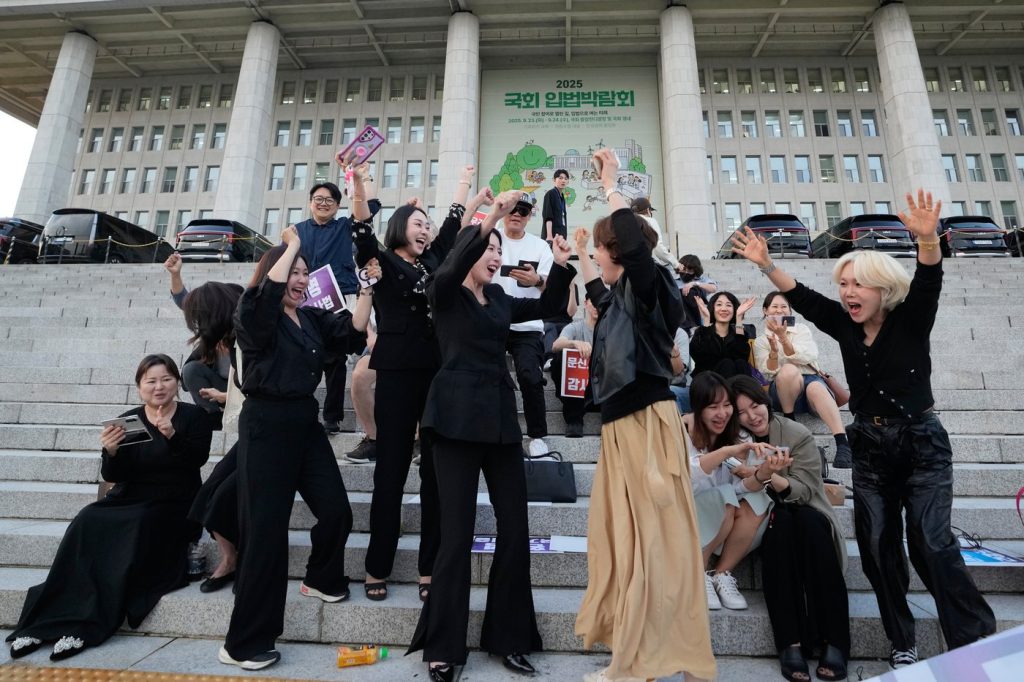SEOUL, South Korea (AP) – In a historic step for the tattoo industry, South Korea’s National Assembly passed the Tattooist Act on Thursday, a decision that allows individuals to legally give tattoos without requiring a medical license. This legislation addresses a long-standing prohibition that branded South Korea as the only industrialized nation with such restrictions, forcing tens of thousands of tattoo artists to operate clandestinely for decades.
The Tattooist Act received overwhelming support, passing with a unanimous vote of 195-0, while seven lawmakers abstained from voting. This new legislation will implement an official licensing system for tattoo artists and subject them to state supervision, aiming to establish a framework for safety and public health within the tattooing profession. The act's enforcement is set to commence after a two-year grace period from the official proclamation by President Lee Jae Myung, a procedural step that is expected to be supported by the Health Ministry.
Public perception of tattoos in South Korea has undergone significant changes over recent years. Historically viewed as affiliations with gangsters or criminal elements, tattoos are now becoming increasingly recognized as a form of self-expression. The visibility of tattoos among K-pop stars and other celebrities has contributed to this cultural shift, helping to normalize body art among the general populace.
The stringent regulations currently in place can be traced back to a ruling by the Supreme Court in 1992, which classified cosmetic tattoos as medical procedures due to potential health risks from tattoo needles and inks. While these laws existed, authorities have typically not enforced them strictly, allowing many tattoo artists to continue their work despite the legal ramifications. A recent survey conducted by the Health Ministry in 2023 revealed that a stark majority of individuals with tattoos did not receive them in medical facilities. Only 6.8% of individuals with cosmetic tattoos, such as eyebrow or eyeliner tattoos, reported receiving treatments in hospitals, compared to a mere 1.4% for ordinary tattoos.
According to the Tattooist Act, the intent is to reconcile the gap between legal stipulations and actual practices in the tattoo industry. The act sets out to enhance public health and safety through the licensing of tattoo artists, defining the scope of their work, and outlining necessary hygiene and safety protocols. This legislation is a considerable victory for the thousands of tattooists operating in South Korea, who have faced the threat of up to five years in prison and fines up to 50 million won (approximately $35,740) for illegally inking individuals.
In recent times, there has been a noticeable trend towards favorable rulings for tattoo artists in court, with some judges choosing to issue deferred decisions. However, those caught operating without a license still face the risk of fines. The pervasive fear of legal repercussions has compelled many tattooers to operate discreetly, often without visible signage on their studios and keeping their doors closed. Many tattoo artists have shared experiences of dealing with difficult customers and some have even relocated abroad to pursue more favorable working conditions.
This legislative change marks a significant milestone in the evolution of the tattoo industry in South Korea. The transition towards legal recognition and regulation of tattoo artists reflects a broader cultural acceptance of tattoos as a legitimate form of art and self-expression, paving the way for a more open and regulated industry in the future.











